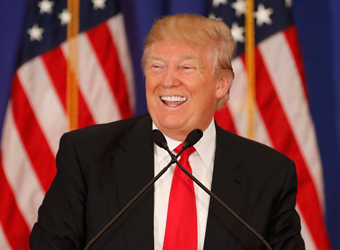Trump’s administration appears to be granting Chinese banks dealing with North Korea a temporary reprieve from threatened U.S. sanctions to give Beijing time to show it is serious about enforcing new U.N. steps against Pyongyang, U.S. officials said.
The White House has also held off on much-anticipated trade action against China after Beijing backed U.N. Security Council sanctions passed on Saturday, although it is unclear how long President Donald Trump will delay this given domestic pressures to make good on campaign promises to crack down on unfair trade practices.
Washington has made clear it is reluctant, for the moment, to take steps that would antagonize China when its cooperation is needed to tighten the screws on its ally and neighbor North Korea over its nuclear and missile programs.
U.S. officials and U.N. diplomats say the threat of unilateral U.S. “secondary sanctions” against Chinese firms with North Korean ties and trade pressure from Washington helped persuade China to drop opposition to the new U.N. sanctions.
“It played an important role to get China on board,” one diplomat said, speaking on condition of anonymity.
The 15 Security Council members voted unanimously on Saturday to impose the toughest U.N. sanctions yet on North Korea after it tested two intercontinental ballistic missiles (ICBMs) in July. The measures are designed to choke off a third of North Korea’s $3 billion annual export revenue. China, North Korea’s main trading partner, has pledged to enforce the new sanctions but some critics are skeptical given what is widely seen as Beijing’s lax policing of existing restrictions.
China, North Korea’s main trading partner, has pledged to enforce the new sanctions but some critics are skeptical given what is widely seen as Beijing’s lax policing of existing restrictions.
Influential Chinese state-run tabloid the Global Times, published by the ruling Communist Party’s official People’s Daily, said in a Wednesday editorial that sanctions would not stop Pyongyang’s determination on its weapons’ programs.
“The U.S. asks China for help when it cannot solve its problems with North Korea. Some U.S. elites even want to urge China to claim full responsibility for the issue or they will threaten to retaliate,” it said.
“Moreover, those U.S. elites may not have considered the leverage China has over the U.S. What if China restricts the usage of iPhones and the number of Chinese students to the U.S., or imports fewer US agricultural products?”
Adding to the sense of urgency, Trump warned on Tuesday Pyongyang “will be met with fire and fury” if it threatened the United States. Earlier Pyongyang said it was ready to give Washington a “severe lesson” with its strategic nuclear force in response to any U.S. military action.
U.S. officials said they would be watching China’s enforcement closely. The administration holds in reserve a list of Chinese banks and other firms the Treasury Department has been preparing to sanction for their alleged ties to North Korea’s military programs.”Right now, our focus is on carrying out the existing sanctions and ensuring compliance with the new U.N. Security Council resolution,” a senior White House official told Reuters on Tuesday, adding there was “nothing imminent to announce” on secondary sanctions.
The Trump administration has also been preparing to launch a high-profile investigation of China for intellectual property violations. An announcement was initially planned for last Friday but was postponed, apparently after China softened its resistance to new U.N. sanctions, diplomats said.
U.S. officials said Washington’s patience with China would be limited, however, and it was important to show some progress on North Korea.
“This course of action cannot be sustained indefinitely,” one U.S. official said. “With his approval ratings falling even with his base, Trump is trapped between the realities of dealing with China and his campaign promises to get tough on trade.”
At the same time, U.S. officials acknowledge that even if the sanctions are properly enforced, there is no guarantee they will be any more effective than previous rounds, which have failed to halt steady progress in North Korea’s nuclear and missile programs.
According to a new U.S. intelligence assessment reported by the Washington Post on Tuesday, North Korea has successfully produced a miniaturized nuclear warhead that can fit inside its missiles, crossing a key threshold. But U.S. intelligence officials told Reuters there was still no reliable evidence that North Korea had fully mastered the process.
Source: Reuters


